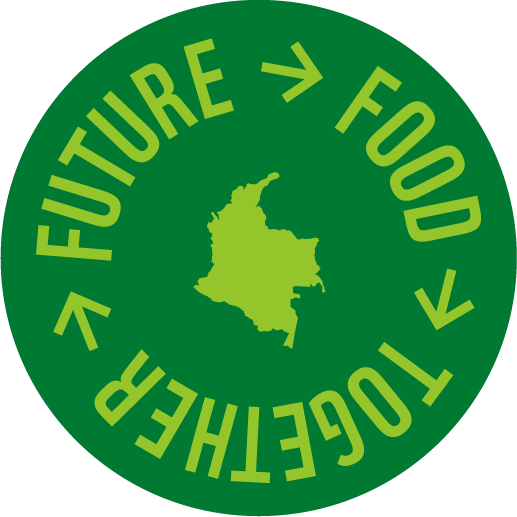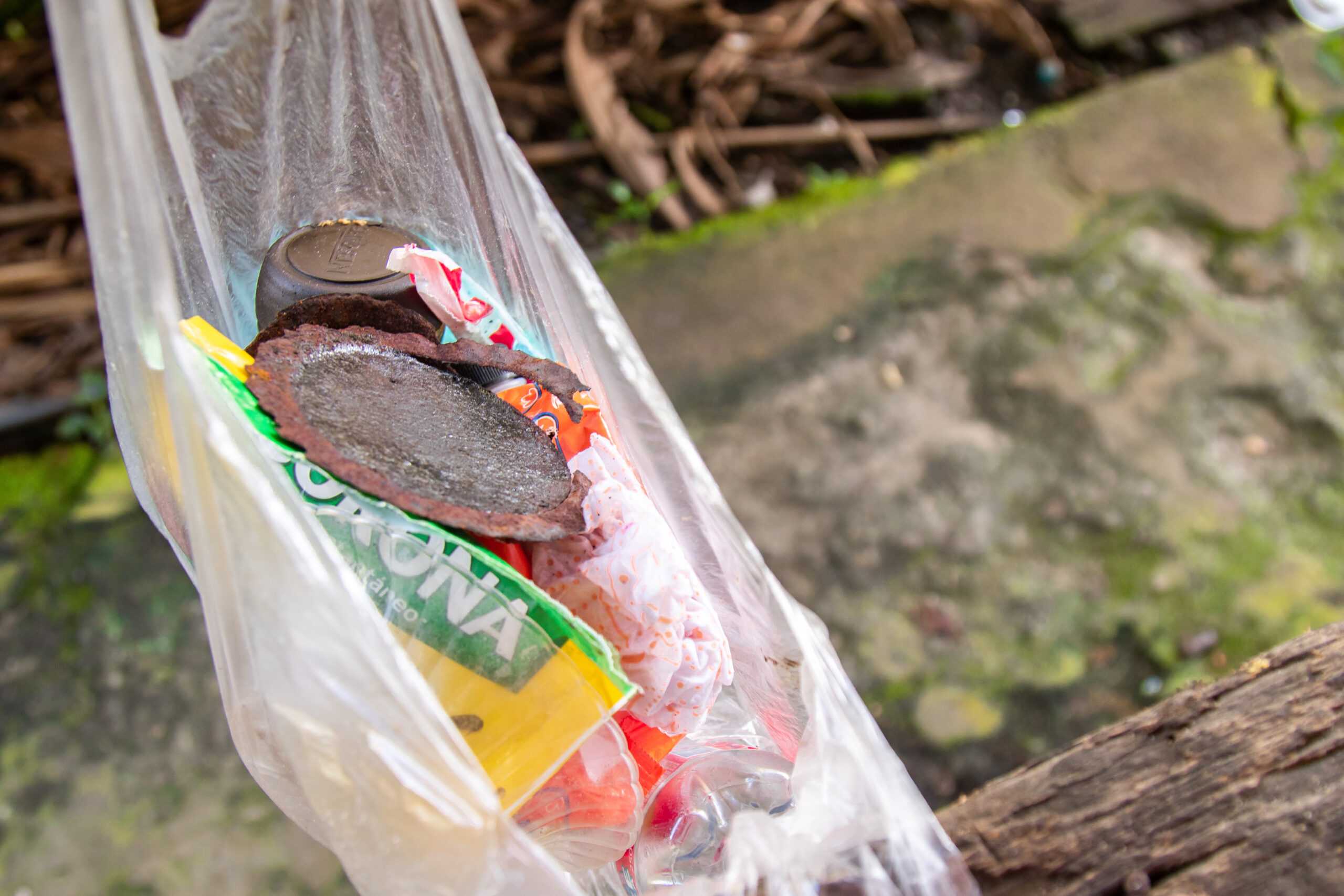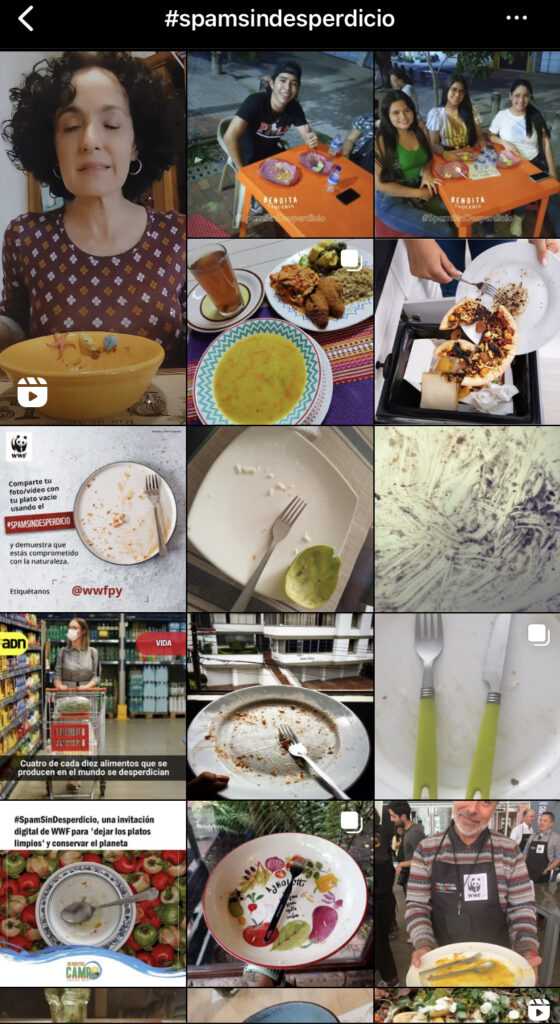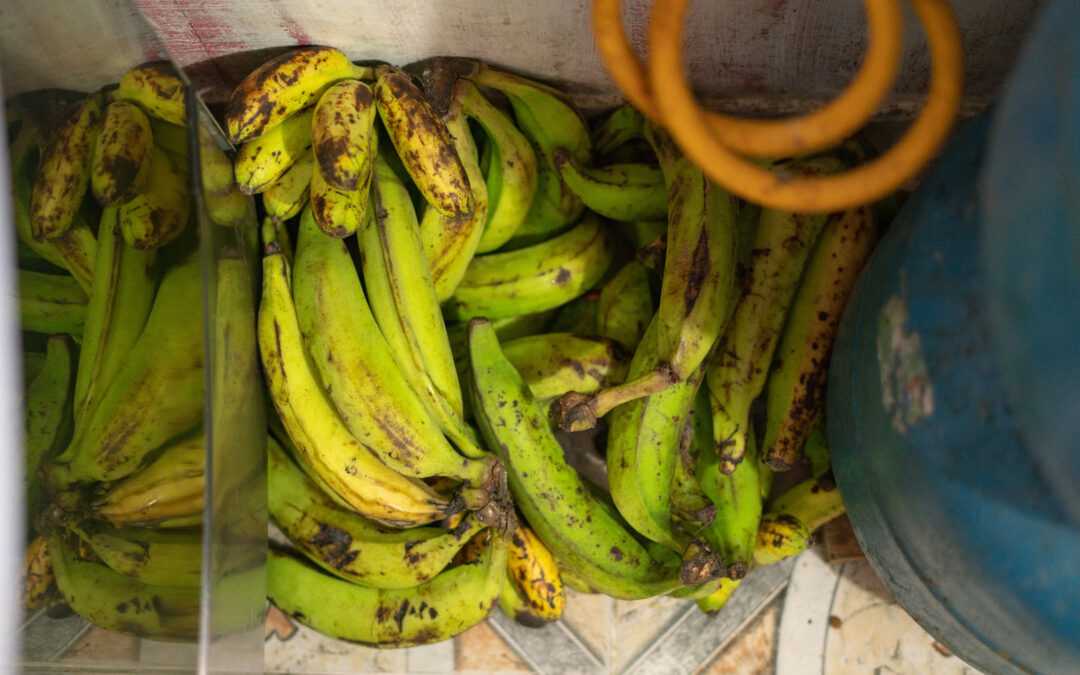
WWF Colombia’s latest campaign has reached more than 20 million people, over 41 percent of its population, with a novel concept.
Comparing a banana to a luxury watch, or a cup of rice to the latest fashionable trainers or thinking that food is so valuable that perhaps it should be transported in an armoured truck, are some of the apparent absurdities that have nudged Colombians to think about food waste throughout the past year.
Research on household food waste
This journey started with research in eight different cities, which showed that, in general, while people know that wasting food is a bad thing, they still do it on a daily basis. The results of the research also showed that people generally do not understand that food waste impacts the planet. It is rather perceived as an unethical practice, a behaviour that they prefer to hide from unwanted scrutiny.
“Food costs the Earth a lot. Don't waste it.”
With this message, the campaign provided concrete examples of actions people could take.

Connecting with people based on their beliefs
The research findings sparked great interest from local, national, and international media. More than 100 articles were published on television, radio, print and online, and made the front page in a national print newspaper. A group of social media content creators also joined the effort and engaged their followers, challenging them to view waste through this different lens. Thirty of them, including actors, TV show hosts and chefs decided to do an ‘unboxing’, a format on digital channels that has become popular to launch products or reveal high-value objects. This time the object in question was not a new mobile phone or any other high-value product, but a passion fruit or a tomato. These unboxing performances allowed the content creators to explain to their followers how behind every crop or food product there is footprint from the water used, the greenhouse gases emitted, or the hectares of land required to produce it, and how the food that ends up in the waste bin squanders all of nature’s “effort” to provide us with food.
Through these actions, another myth that was revealed by the research was dispelled: that most Colombians think that foods such as fruits and vegetables are almost harmless to the environment, believing that when they are tossed into the rubbish bin, these foods simply return to nature. Reality contrasts with this perception: the foods that are most lost and wasted in Colombia are, precisely, fruits and vegetables, which generate greenhouse gases in the landfills where they end up across the country. Paradoxically, consuming more fruit and vegetables is key to tackle malnutrition in Colombia and reduce the food systems’ impacts. One in three Colombians do not eat fruits and five out of seven do not eat vegetables.
A call to action, the details do matter
Living #WasteFree (Spanish: #SinDesperdicio) would seem at first glance to be a very concrete call to action. However, it is not. The research revealed that at least 21% of respondents do not know how to avoid food waste while others even believe it is impossible. Many associate food waste only to the leftovers on a plate, ignoring other key activities where it can also occur, such as when storing or cooking. For this reason, www.vivesindesperdicio.com was created, a website where people can learn how to avoid wasting different types of food. In the form of a directory from A to Z, one can find what to do with leftover rice or how to properly store a carrot. There are videos showing how to make new recipes with leftover chicken or how to use vegetable skins to avoid that they end up in the bin.

Social Media uptake and unboxing with influencers. © WWF-Colombia
Hundreds of bus-stop advertisement marquees were provided pro bono to the campaign, which included a QR code that any citizen walking down the street could to easily access information resources to learn how to reduce their food waste.

Communicating the key messages at bus stops © WWF-Colombia
What we have learned: from outreach to behaviour change
Have Colombians reduced their waste? The truth is, we don’t know. The country does not yet have a methodology in place to measure food waste and the baseline data is from a 2016 study, prior to the pandemic and its effects. However, in 2023 we will carry out a new comparative study to see if the perceptions and behaviours with regards to food waste have changed at all thanks to these campaigns. During World Day Against Food Waste, we ran a digital challenge where we invited people to share their empty plates on social media using the hashtag #SpamWithoutWaste (Spanish: #SpamSinDesperdicios). In just one day, thousands of people interacted to show that eating everything we put on our plates helps reduce waste. With these kinds of challenges, we observed how to go from only the intention to act to actually mobilising people through concrete actions. Either way, one issue is clear: We need to prioritise the conversation about food waste. However, it will take much more than a campaign to achieve change, as food waste is still like a taboo within households, almost a secret that people prefer not to address as many feel that it is not their responsibility (or their loss!) if food reaches the waste bin.
The reiteration of the key message must be continuous and, in doing so, it is essential to unravel the pre-existing conceptions that are at the root of food waste generation.
Confronting these misconceptions should not only be done through the provision of information, but through the proposition of actions with which households can change their behaviour: How to get people to choose the slightly bruised fruit in the supermarket? How to give access to information on the correct way to store food to those who order via digital apps? How to change the way restaurants serve their meals so that less food is left on the plate or how to get customers to take their leftovers home in doggy-bags?
These are all new action fronts that allow WWF Colombia to collaborate with key allies in the retail, food service and new digital sectors, with the aim to enable the conditions that make it easier for the consumer to make better consumption decisions. In this way we are committed to solving Colombia’s food waste issue and contribute to the urgent need for global food systems transformation.













